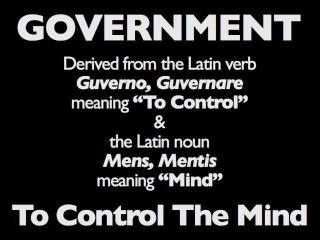FISCAL INSANITY: European Central Bank plans to implement negative interest rates alongside digital euro rollout
03/20/2023 / By Kevin Hughes

The European Central Bank (ECB) is mulling the use of negative interest rates – which decrease the value of money – as it rolls out its central bank digital currency (CBDC).
Digital Euro Association Executive Director Sarah Palurovic broke the news during her appearance on the “Poundcast” podcast. She explained that the ECB wants to “keep the possibility open for tiered remuneration” after the digital euro is rolled out, as the central banks wants to have “measures that incentivize or disincentivize people to hold more or less CBDCs.”
According to Palurovic, negative interest rates are among the measures considered by the ECB. It had earlier suggested imposing spending limits on the digital euro. (Related: Federal Reserve expected to raise interest rates earlier than expected due to rapid inflation.)
Negative interest rates permit central banks to select a rate at which the money runs out and penalize those who save their money. For instance, a interest rate of -10 percent will cause someone to lose 10 percent of their money annually unless they spend it.
The possible extent of these negative interest rates suggestions is enormous, given that the 341 million people use the euro for everyday transactions and its status as the authorized currency of 20 nations.
In a separate document, the ECB described the digital euro as “public good” that should be “widely available and usable anywhere in the euro area to make and receive payments.” To achieve this goal, the central bank said “an appropriate combination of requirements and economic incentives” should be established, “providing confidence that network effects will be achieved.”
Control money, control the people
Governments and globalists institutions are huge fans of expiring money because they perceive it as a “monetary policy tool” that can “make money costly to hold and would thus pressure people to spend it quickly.”
Prior to the ECB proposing negative interest rates, other central banks have put forward similar ideas. The Bank of England wants the power to determine what people use up their CBDCs on, while the World Bank wants to be able to “ban certain users from access to cash.”
Meanwhile, the ECB has displayed plans for a staggered introduction of a digital euro that would start with the bank primarily releasing the CBDC for use in person-to-person and e-commerce transactions.
The bank would then include support for online and offline digital euro payments at the point of sale and person- or business-to-government payments along with taxes and custom duties in addition to any other remaining use cases, as stated by an ECB presentation published online.
The ECB presentation said multiple use cases are needed to address the assortment of end-user needs and market gaps across European Economic Area countries aside from responding to a landscape with different payment behaviors and preferences.
As of writing – the ECB is now planning further work on the details of the digital euro rollout, with the submission of the proposal to the central bank’s governing council scheduled during the third quarter of 2023.
Head over to CurrencyReset.news for more stories about CBDCs.
Watch Holly Seeliger expound on the ECB’s plan to launch a CBDC across Europe, in cooperation with technology giant Amazon.
This video is from the Zoon Politikon channel on Brighteon.com.
More related stories:
US government’s new Central Bank Digital Currency is a fast track to digital concentration camps.
Sources include:
Submit a correction >>
Tagged Under:
central banks, Collapse, computing, currency crash, currency reset, digital currency, digtal euro, economic collapse, European Central Bank, Glitch, monetary control, money supply, negative interest rates, Orwellian, surveillance, watched
This article may contain statements that reflect the opinion of the author
RECENT NEWS & ARTICLES
COPYRIGHT © 2018 ORWELLIAN.NEWS
All content posted on this site is protected under Free Speech. Orwellian.news is not responsible for content written by contributing authors. The information on this site is provided for educational and entertainment purposes only. It is not intended as a substitute for professional advice of any kind. Orwellian.news assumes no responsibility for the use or misuse of this material. All trademarks, registered trademarks and service marks mentioned on this site are the property of their respective owners.



















